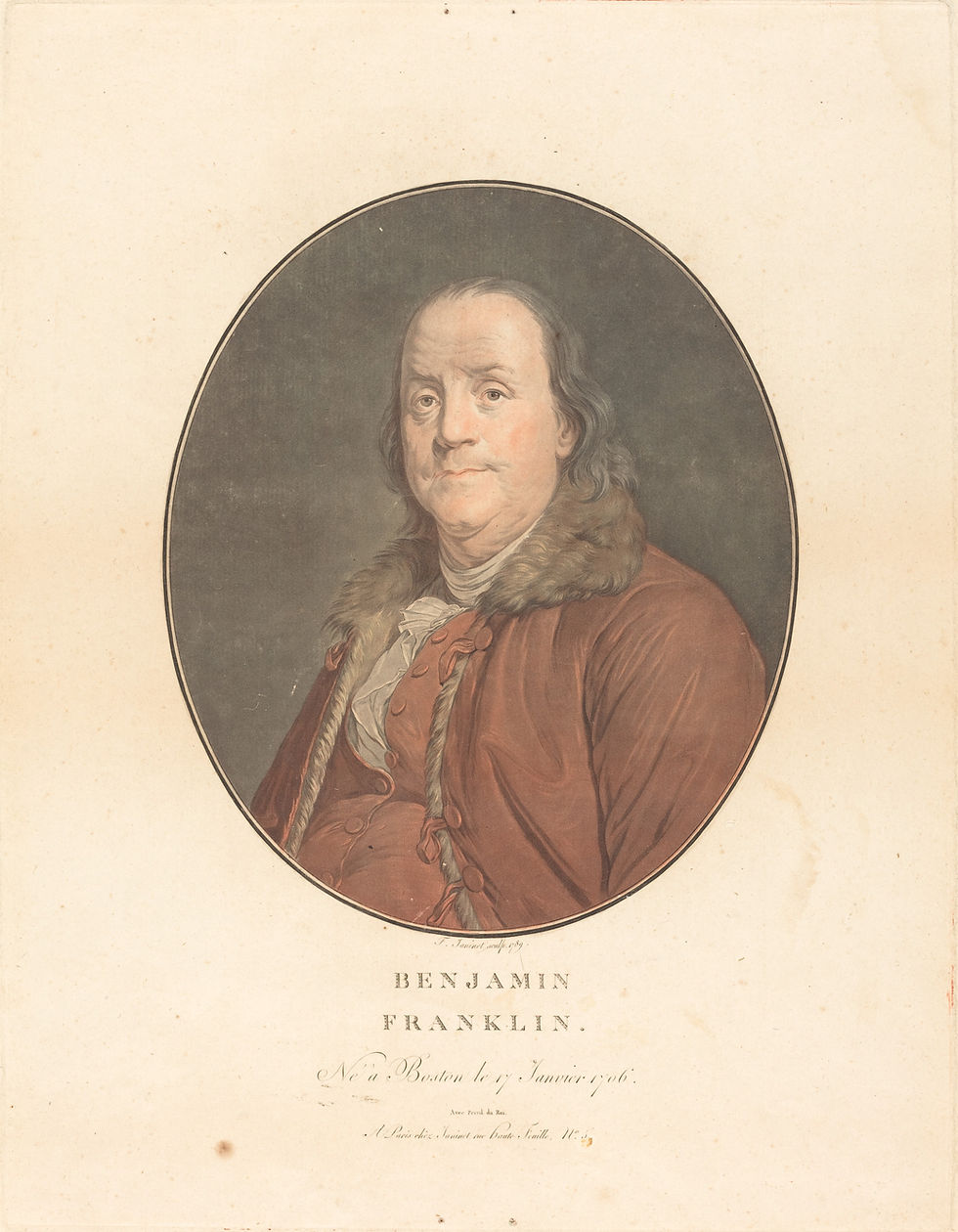Thomas and Deborah Cushings
- Haley Jensen
- Feb 18, 2021
- 2 min read
Updated: Apr 28, 2021
Thomas Cushing (1725-1788) an American lawyer, politician and merchant. He represented Massachusetts in the Continental Congress and worked as the lieutenant governor of Massachusetts in 1780-88. Before Wheatley’s trip she had to prove that she herself was authentically writing these poems to Cushing as well as 18 of the most 'Reputable Men in Boston".
This was due to 18th century beliefs that black people were incapable of learning. This is seen in Bernard Le Bovier de Fontenelle saying black people were incapable of becoming poets, read more on this by clicking the Voltaire section.
This letter is written only a few years after Wheatley's trial. His wife is praising Wheatley's works. This show's how Wheatley's became very popular with elite society in a short amount of time.
There is a gap in historiography for women in the 18th century, unfortunately this is resulting in a lack of image or dates of birth for Deborah and we have more information on her husband than her.
That is not to say Deborah was not important to early American history, her letters have been saved and used by historians to access what life was like in revolutionary Boston during the war.
Moreover, writing in the 18th century in the colonies was a skill of the privileged classes and more men were taught to write than women. An estimation from the time based off of women's ability to write their own signatures on a will, suggests only 50 percent of white women could write. Suggesting Deborah was skilled for her time.
More importantly this is further emphasizing how special Wheatley is as a gifted poet and author.
,
Letter from Deborah Cushing to Thomas Cushing, 19-21 September 1774
"I rote you by Mr. Cary and sent you one of Phillis Wheatley’s books which you will wonder at but Mrs. Dickerson and Mrs. Clymer Mrs. Bull with some other lady’s were so pleas’d with Phillis and her performances that they bought her Books and got her to compose some piece for them"

The full letter is accessible with this link below! I'm very grateful for the Massachusetts Historical Society for allowing me to quote these letters as well as having loads of primary sources and educational information on Wheatley available for free.
For more information on the trial The Trials of Phillis Wheatley: America's First Black Poet and Her Encounters with the Founding Fathers by Henry Louis Gates Jr. I would also recommend this video of Gates discussing Thomas Jefferson and Phillis Wheatley.
The study mentioned about the will and women's literacy rates comes from Mary Beth Norton's novel 'Liberty's Daughters: The Revolutionary Experience of American Women, 1750-1800'.



Comments